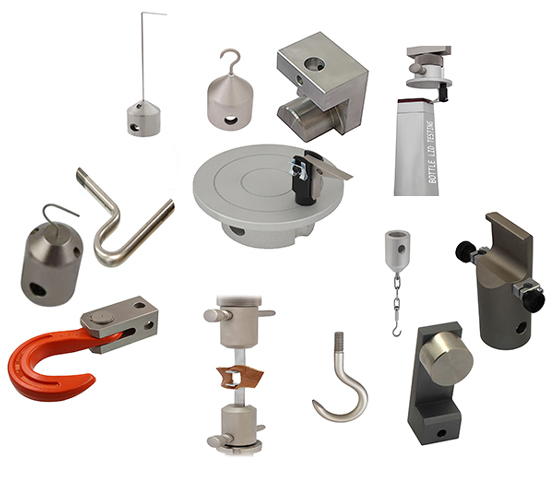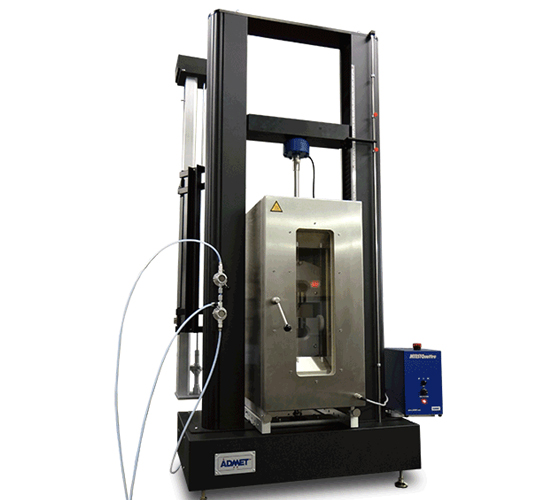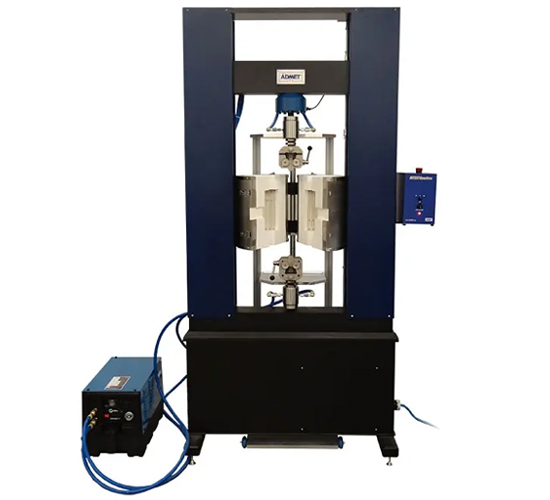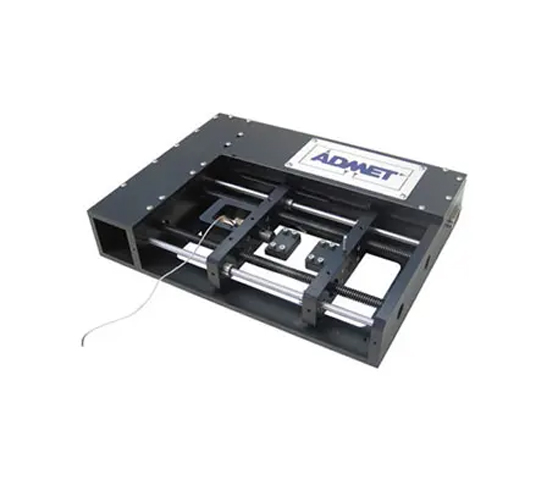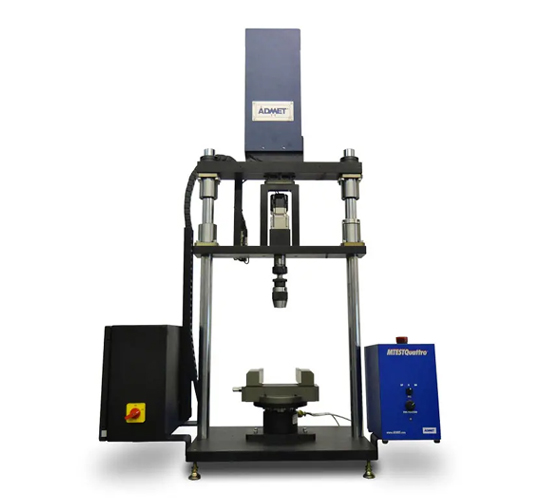Hook Grips Applications
The Hook Grips are specialized accessories used in Universal Testing Machines (UTMs) for gripping specimens during tensile and elongation tests. These grips are designed to securely hold materials with hooks at either end, making them suitable for a variety of applications where traditional vice or clamp-style grips might not be appropriate. Hook Grips offer ease of use and high precision, ensuring reliable results during mechanical testing of materials under tension.
Applications for Universal Testing Machines (UTMs):
Tensile Testing of Polymers and Plastics: Hook Grips are commonly used for tensile testing of plastics and polymers, helping to determine their tensile strength, elongation, and yield points. These grips are ideal for handling flexible materials like films, sheets, and molded components, providing consistent results across various testing applications.
Fiber and Textile Testing: Used for testing fibers and textiles, Hook Grips are perfect for elongation and tensile testing. They allow for secure holding of yarns, fibers, and fabrics, ensuring accurate measurement of properties like breaking strength, elongation at break, and tear resistance, which are crucial for industries like apparel and textile manufacturing.
Rubber and Elastomer Testing: These grips are widely used in the rubber and elastomer industries for tensile testing of materials like rubber sheets, gaskets, and seals. The hook grips secure these materials during tensile testing, helping evaluate properties such as elasticity, tensile strength, and elongation, which are essential for automotive and industrial applications.
Wire and Cable Testing: Hook Grips are ideal for wire and cable testing, especially when testing their tensile strength and elongation under tension. These grips securely hold wires, cables, and ropes during tensile testing to assess their strength and ductility, which is important in industries like telecommunications, construction, and electronics.
Composite Material Testing: These grips are used in composite material testing to evaluate the tensile properties of fiber-reinforced composites. They ensure proper specimen alignment and gripping during tensile and flexural tests, essential for industries like aerospace, automotive, and construction, where composites are increasingly used.
Metal Testing: Hook Grips are effective in metal testing to determine tensile strength, yield points, and ductility of materials such as metal wires, strips, and rods. These grips are particularly useful when testing thin, long metallic specimens that need to be securely held for accurate measurement during tensile stress applications.
Packaging Material Testing: Used in the packaging industry, Hook Grips are applied for tensile testing of films, foils, and packaging materials to assess their strength, tear resistance, and elongation properties. This is essential for testing the performance of materials that will be used for packaging products during transportation and storage.
Adhesive Bond Testing: Hook Grips are used in peel testing and lap shear testing of adhesive bonds. These grips securely hold materials with adhesive bonds, such as films or laminates, during tensile stress to evaluate the bonding strength and performance of adhesives, which is critical for applications in electronics, automotive, and construction industries.
Wood and Lumber Testing: These grips are used for testing wood and lumber materials, particularly in tensile testing to evaluate strength and elongation. The Hook Grips provide an efficient and precise way to secure wood samples for strength testing, helping ensure quality control in the construction and furniture industries.
Biomedical Testing: In the biomedical industry, Hook Grips are used for tensile testing of biomaterials, including implants and prosthetics. The grips ensure that the materials are securely held during testing to evaluate their biocompatibility and mechanical properties, ensuring that medical devices meet safety standards.
Advantages of Hook Grips:
- Ease of Use: Simple to operate and install, making them ideal for quick testing setups.
- Versatile: Suitable for a wide range of materials, including rubbers, plastics, fibers, metals, and composites.
- Reliable Clamping: Provides secure holding, ensuring specimens stay in place during tension tests, which is crucial for accurate test results.
- Durability: Made from high-quality materials that ensure long-lasting performance under frequent use.
- Adjustable: Can be adjusted for different specimen sizes and shapes, making them flexible for a variety of testing needs.
- Cost-Effective: Offers a low-cost, reliable gripping solution for many industries, from automotive to biomedical.
Industry Applications:
- Automotive Industry: Used to test rubber components, plastics, and composite materials under tensile loads.
- Textile Industry: Widely used for testing fibers and textiles in the assessment of tensile strength and elongation.
- Medical Device Industry: Used to test biomaterials and implants to assess their strength and biocompatibility.
- Construction and Manufacturing: Applied to test metal wires, composites, and wood materials for tensile strength and ductility.
- Packaging Industry: Used to test films and packaging materials for their strength and tear resistance.
- Electronics Industry: Utilized for testing adhesives and materials used in electronic devices for bond strength and durability.
Hook Grips are a versatile, reliable solution for tensile testing across multiple industries, including automotive, medical, packaging, and textiles. They provide secure clamping for materials, ensuring accurate and consistent testing results.

